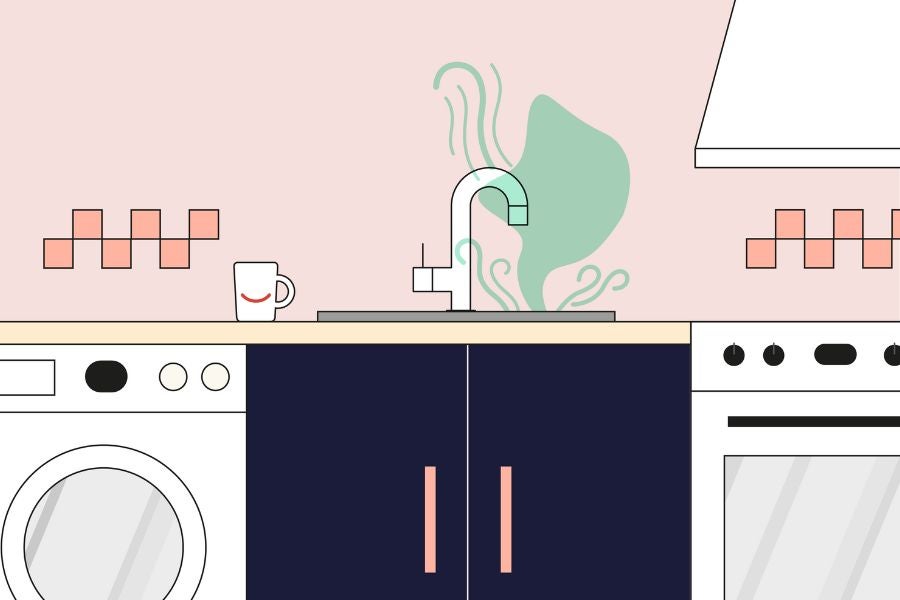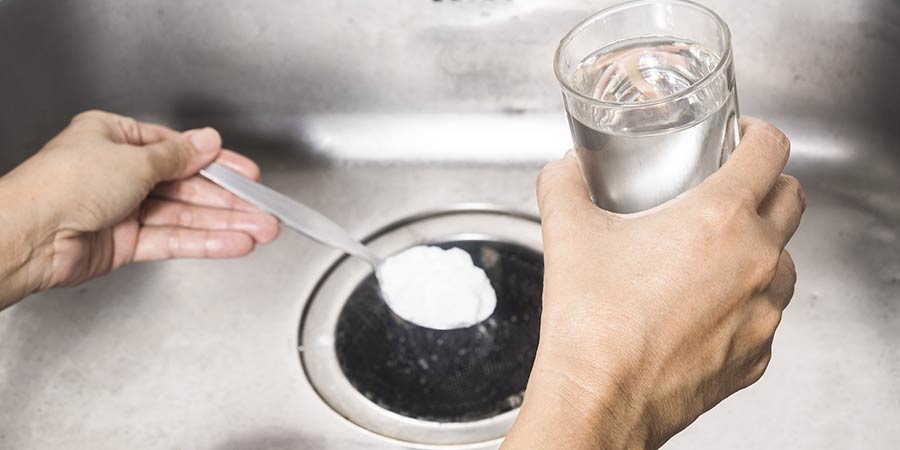Plumbing advice
How to get rid of kitchen sink smells
21 Feb 2020 • 5 minutes

Plumbing advice
21 Feb 2020 • 5 minutes
Service Excellence Coach

We all want our kitchens to smell fresh and clean. Especially as it’s the place where we prepare all our food. There’s nothing more off-putting than a terrible odour coming from the sink!
In this article, we’ll explore why drain smells occur, how to get rid of them and prevent them from coming back.
There are two main reasons why your kitchen drain may smell:
In some rare cases, kitchen smells are caused by mould. If you think that could be your problem, read our article on how to get rid of mould to fix it.
Diagnose the cause of the problem:
Kitchen sink smells are easily fixed by unclogging blockages, cleaning the pipes with a ready-made chemical or home-made solution or fixing the U-bend.
If you try all the methods described below, but still smell sewer gases, professional help may be needed.
Below is a list of the different methods you can use to get rid of nasty kitchen sink drain odours.
For rotting food smells, try one of the DIY or chemical cleaning methods. For sewer gas smells follow the instructions for checking your U-bend.

The following methods are useful for getting rid of rotting food smells.
The following methods are useful for getting rid of rotting food smells.
This is an eco-friendly, non-toxic chemical cleaner. It works by using enzymes that eat the food debris without causing any damage to your pipes.
Ready-made drain cleaning chemicals can be bought from most hardware stores or supermarkets.
But beware. These chemicals can be dangerous. Always follow the instructions printed on the packaging and wear rubber gloves and goggles.
The U-bend pipe under your kitchen sink is also known as a sewer gas trap. This U-bend should always be full of water and acts as a barrier to stop sewer gas escaping out of the plughole.
Help get rid of sewage gas smell by checking the following:
Has the water in the U-bend evaporated? This can happen if you’ve been on holiday and not run any water for a while. The simple solution is to run some water to fill up the U-bend.
Is there a leak in the U-bend? Check for drips or damp patches under the sink. If there’s a leak, call a professional plumber to fix it for you. You can get more help on how to diagnose leaking pipes here.
Is there an obstruction in the U-bend? If there’s still a blockage after cleaning, remove the U-bend with a wrench and clean it out with a wire brush.
It’s easy to prevent your sink from getting smelly. All you need are a few good habits and routine maintenance. Try the following:
If you’ve tried all the methods in this article and still find that your kitchen drain stinks, call HomeServe for assistance.
To protect yourself and your home from plumbing and drainage problems in future, HomeServe offers plumbing and drainage insurance cover for peace of mind.
Liam has been working for HomeServe for over 18 years, starting as a water supply engineer then obtaining the required qualifications and venturing into Plumbing and Drainage, expanding his knowledge of the sector.
There are not many places left in England where Liam has not completed a job for HomeServe. He’s worked on water from 4” pipes to 15 mm pipes. One of his biggest jobs to date was installing the water supply pipe to one of the training pools for the Olympics in London 2012. Liam is now one of our Service Excellence Coaches, who help support our engineers in the field.
Why HomeServe?Liam has been with HomeServe for so long because of the commitment they have on being the best, striving to give the customers the best journey. Many businesses do not care about their staff, this is not the case at HomeServe who put it at the heart of what they do.
18 years working in Water Supply, Plumbing and Drainage.
Liam has been working for HomeServe for over 18 years, starting as a water supply engineer then obtaining the required qualifications and venturing into Plumbing and Drainage, expanding his knowledge of the sector.
There are not many places left in England where Liam has not completed a job for HomeServe. He’s worked on water from 4” pipes to 15 mm pipes. One of his biggest jobs to date was installing the water supply pipe to one of the training pools for the Olympics in London 2012. Liam is now one of our Service Excellence Coaches, who help support our engineers in the field.
Why HomeServe?Liam has been with HomeServe for so long because of the commitment they have on being the best, striving to give the customers the best journey. Many businesses do not care about their staff, this is not the case at HomeServe who put it at the heart of what they do.
18 years working in Water Supply, Plumbing and Drainage.
Our help & advice articles cover Plumbing, Home heating, Electrical, Energy-saving and Home maintenance.